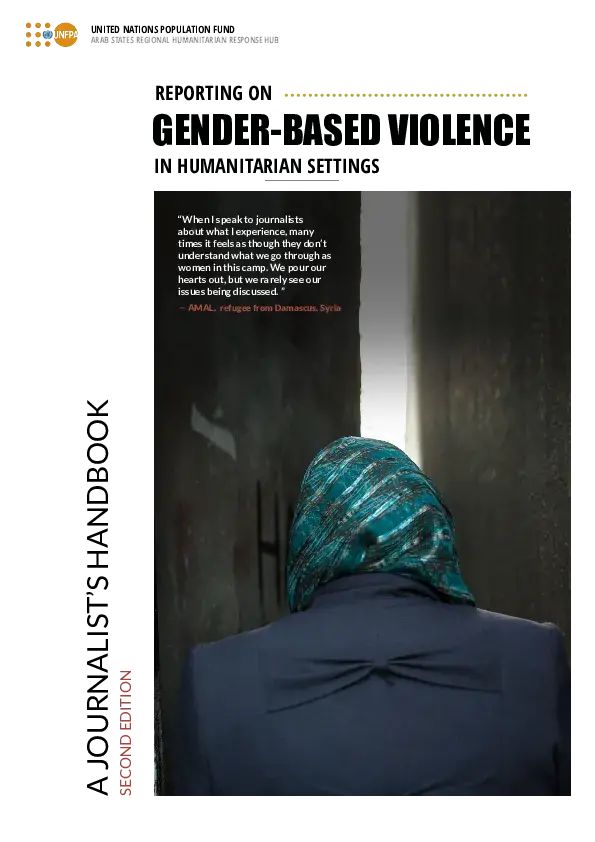The United Nations Population Fund — Arab States Regional Response Hub has marked International Women’s Day 2020 by underscoring the importance of survivor-centred journalism and introducing a tool that will help media professionals region-wide to produce more sensitive, professional and impactful stories.
In an effort to promote more ethical and professional reporting on gender-based violence, the United Nations Population Fund (UNFPA) has announced the launch of the second edition of the Journalist’s Handbook — a detailed guidebook on the principles of reporting on this essential subject.
Developed by UNFPA Arab States Regional Humanitarian Response Hub, the Journalist’s Handbook offers a series of guides, tips and insights on the fundamentals of gender-based violence, its root causes, and the principles of reporting on it. The handbook was launched to mark the occasion of International Women’s Day and encourage media organisations throughout the region to both increase and strengthen their coverage of gender-based violence and other issues impacting the lives of women and girls in humanitarian settings throughout the region.
“Eradicating gender-based violence is one of the key transformational goals for UNFPA,” explained Luay Shabaneh, UNFPA Arab States Regional Director. “This is why we firmly believe in the important role played by journalists in raising awareness on the issues impacting the lives of women and girls, the various forms of violence that target them, and the ways in which journalists can tackle these issues without endangering the lives of survivors.”
According to Shabaneh, the media can serve as a powerful ally in amplifying the voices of women and girls and ensuring that survivor stories are read by as many audiences as possible. Unfortunately, failing to adhere to rigid standards of reporting can often place survivors in harm’s way, either by reinforcing harmful stereotypes, shifting the focus away from perpetrators, or revealing sensitive information that can jeopardize the safety of survivors. These problems can be avoided if journalists receive the proper support, including key information on gender-based violence, its causes, its many manifestations in communities throughout the region, and the ethical guidelines for reporting on it without causing harm.
With the Journalist’s Handbook, UNFPA is providing media representatives region-wide with a simple, comprehensive and highly adapted tool that not only breaks down the subject to its core tenets but also provides insights from leading journalists and experts in the region, many of whom have covered human rights, women’s issues and gender-based violence for decades. The handbook was originally launched in 2015, with this updated edition significantly broadening the areas covered by incorporating insights gained from UNFPA various training programmes and consultations organised over the past five years.



